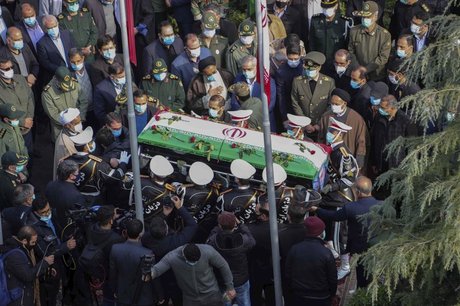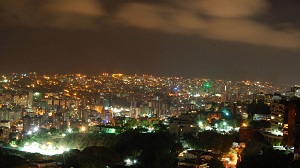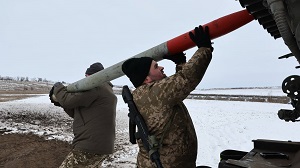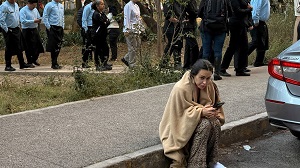Iran Says Israel Remotely Killed Military Nuclear Scientist

AFP
A top Iranian security official on Monday accused Israel of using "electronic devices" to remotely kill a scientist who founded the Islamic Republic's military nuclear program in the 2000s.
Ali Shamkhani, the secretary of the country's Supreme National Security Council, made the comment at the funeral for Mohsen Fakhrizadeh, where Iran's defense minister separately vowed to continue the man's work "with more speed and more power."
Israel, long suspected of killing Iranian nuclear scientists over the last decade, has declined to comment on the attack.
Fakhrizadeh headed Iran's so-called AMAD program, which Israel and the West have alleged was a military operation looking at the feasibility of building a nuclear weapon. The International Atomic Energy Agency says that "structured program" ended in 2003. U.S. intelligence agencies concurred with that assessment in a 2007 report.
Israel insists Iran still maintains the ambition of developing nuclear weapons, pointing to Tehran's ballistic missile program and research into other technologies. Iran long has maintained its nuclear program is peaceful.
Shamkhani's remarks drastically change the story of Fakhrizadeh's killing Friday. Authorities initially said a truck exploded and then gunmen opened fire on the scientist, killing him.
State TV's English-language Press TV earlier reported a weapon recovered from the scene of the attack bore "the logo and specifications of the Israeli military industry." State TV's Arabic-language channel, Al-Alam, claimed the weapons used were "controlled by satellite," a claim also made Sunday by the semiofficial Fars news agency.
None of the outlets immediately offered evidence supporting their claims.
"Unfortunately, the operation was a very complicated operation and was carried out by using electronic devices," Shamkhani told state TV. "No individual was present at the site."
Shamkhani also blamed the Iranian exile group Mujahedeen-e-Khalq as well for "having a role in this," without elaborating. The MEK did not immediately respond to a request for comment.
Monday's service for Fakhrizadeh took place at an outdoor portion of Iran's Defense Ministry in Tehran, with officials including Revolutionary Guard chief Gen. Hossein Salami, the Guard's Quds Force leader Gen. Esmail Ghaani, civilian nuclear program chief Ali Akbar Sahei and Intelligence Minister Mamoud Alavi. They sat apart from each other and wore masks due to the coronavirus pandemic as reciters melodically read portions of the Quran and religious texts.
Defense Minister Gen. Amir Hatami gave a speech after kissing Fakhrizadeh's casket and putting his forehead against it. He said Fakhrizadeh's killing would make Iranians "more united, more determined."
"For the continuation of your path, we will continue with more speed and more power," Hatami said in comments aired live by state television.
Hatami also criticized countries that hadn't condemned Fakhrizadeh's killing, warning: "This will catch up with you someday." Overnight, the United Arab Emirates, which just reached a normalization deal with Israel, issued a statement condemning "the heinous assassination." The UAE, home to Abu Dhabi and Dubai, warned it "could further fuel conflict in the region."
Last year, the UAE found itself in the middle of an escalating series of incidents between Iran and the U.S. Though long suspicious of Iran's nuclear program, the Emirates has said it wants to de-escalate the crisis. The UAE just started passenger air service to Israel and Israelis are expected to vacation in the country over Hanukkah in the coming days.
Hatami also called the nuclear arsenal of the U.S. — and the stockpile of atomic bombs Israel long has been suspected of holding — "the most dangerous threat against humanity."
Mourners later buried Fakhrizadeh in the courtyard of Imamzadeh Saleh mosque in north Tehran.
Latest News
-
 Maduro could appear in New York federal court as soon as Monday: Sources
Maduro could appear in New York federal court as soon as Monday: Sources
-
 US senator quotes Rubio saying no more Venezuela strikes
US senator quotes Rubio saying no more Venezuela strikes
-
 Explosions heard in Venezuela’s capital Caracas
Explosions heard in Venezuela’s capital Caracas
-
 Zelensky says wants to replace Ukraine's defence minister
Zelensky says wants to replace Ukraine's defence minister
-
 6.5-magnitude quake shakes Mexico City and beach resort, killing two
6.5-magnitude quake shakes Mexico City and beach resort, killing two